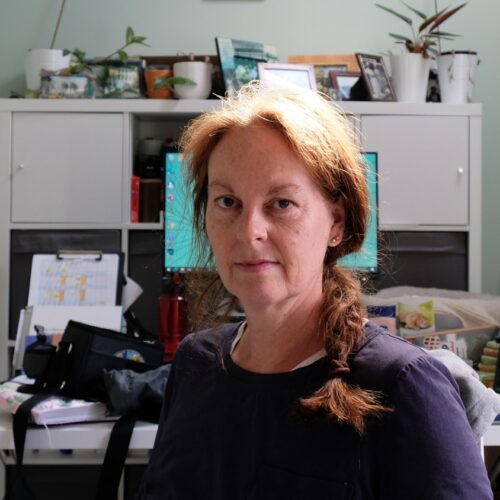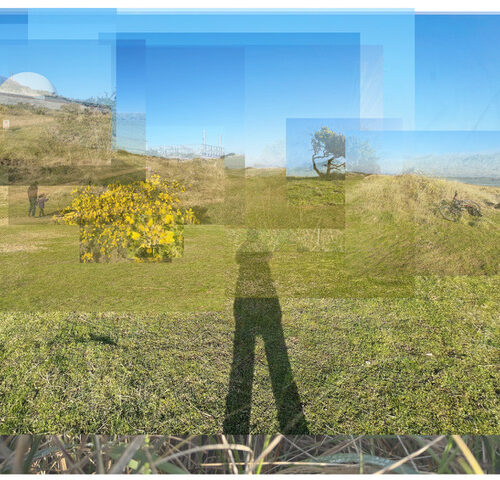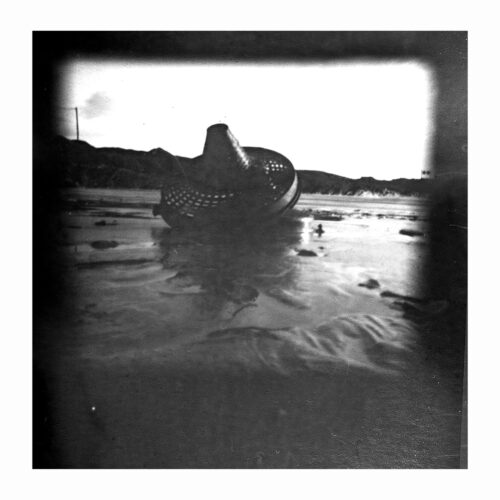JH Engström on becoming a photographer
Posted: 14/04/11 08:42 |
20 Comments
In the first of the videos we have taken from the National Media Museum’s ‘In Conversation’ JH Engström talks about his early career. Interestingly, he doesn’t start with the ‘how’ of becoming a professional photographer, but the ‘why’. The ‘Anders’ referred to in the clip is, of course, his mentor and collaborator Anders Peterson.
Posted by author:
Mark Lomas

Tutor News – Katrina Whitehead
Posted: 17/11/23 01:16
6 Comments
Some of you will know me as your personal tutor, or you may have...
Read more

Student Stories: Julia McLean
Posted: 19/10/23 02:10
2 Comments
OCA Photography Program Leader Dan Robinson caught up with Julia McLean about her experience...
Read more

OCA’s Online Degree Show Showcase 2023
Posted: 14/07/23 12:39
0 Comments
Welcome to our online Degree Show Showcase 22/23 where we are celebrating a number...
Read more

Student stories: Nuala Mahon
Posted: 14/04/23 01:48
30 Comments
I have arrived at the finishing line of the long adventure that is (or...
Read more
Back to blog listings







Thanks for posting this – as it’s the “first” of the videos, is there a plan to show his slide presentation, or was that off limits? (I really enjoyed it)
One thing in particular he said is quite important I believe, and that was about “Diving into everything around photography”. I’m still unsure about what I want to be when I grow up (photographically speaking), so I think it’s important, especially around the L1 courses and TAOP in particular, not to try and specialise – using a particular genre as often as possible. Leave that for later…
Hi Rob
Very good advice.
I don’t think we can post the slide show from Wells, there are a few images from it here including the flinch-worthy placentas shot, which makes sense in having seen the full slideshow , but didn’t beforehand.
From your link, a quick click brings up some text, the first line of which is
“The real voyage of discovery consists not in seeking new landscapes but in having new eyes”
It’s attributed to Marcel Proust.
When I did TAOP, I think I fell into what many have done and assignment 5 was from a holiday. Landscape at level 2 started me looking at the mundane. This quote is huge – it will be going on my blog…
“Diving into everything …”
Yes, good advice, Rob; and also worth noting that he still does it, to an extent, in the way that he uses the medium. We’ve spoken a few times about the restlessness of his style – colour, mono, large format, disposable camera – they can all be part of how he expresses himself. I found it a useful reminder in this video when he says that he is still in the state of confusion about humanity and what it can do (or words to that effect), and that that is where his photography comes from.
I think it is important to go beyond one’ main medium too. In an interview c1970 Man Ray said, “I photograph the things that I do not wish to paint, the things which already have an existence.” Even if we don’t follow a multi-media practice we should nevertheless keep looking at what is happening in other media, reading what is current in writing, listening to the way music is going, and see which way thinkers suggest we are going. I suppose what I am saying is that being an artist is just a way of being!
Thanks so much for posting this. I missed the opportunity to go and be there, so to be able to watch this now is great.
‘Whatever photography you do, if you want to be good, you have to be serious about it and take yourself seriously.’ This comment means a lot to me.
Thank you.
Thank you for emailing the link,very intresting.I went to see the exhibition a couple of months ago, at the media museum in Bradford.A brilliant exhibition!
Thank you for posting this clip. Watching it leaves me so inspired. The comment, whatever photography you do if you want to be good you have to be serious about it and be serious about yourself really rings true.
MMmmmnn .. I prefer what David Hurn calls “On being a photographer!”
A subtle difference … or maybe not so subtle!
Guess it depends on what you want out of photography or what you feel you can do.
Being just sounds a bit more intelligent than Becoming … !!
I don’t know about ‘intelligent’ but it is an interesting distinction. I suspect it reflects the different practices and backgrounds of the two; the one, JH Engström, going on a voyage of discovery in a more or less fine art way and the other, Hurn, reporting on the world as a photo-journalist. The first coming from a more or less after Modenist (I am avoiding the term post-modernist on purpose) background and the latter a Modernist tradition. Neither is better than the other I would suggest, but different and this difference is apparent in the work they produce.
As for seriousness … isn’t seriousness really some kind of disease!?
If your photos are serious then they may not appeal to many people other than serious people … !!
The word “dedication” springs to mind also “committed”
if seriousness is a disease that it might be one of the few desirable ones! I think that Engström is meaning that one should not make meaningless work, work that one doesn’t believe in or that is merely formulaic. Now the Norwegian side of my personality knows that all Swedes take everything too seriously and think the world would come to an end if they laughed 🙂 but I don’t see any contradiction between seriousness of intent and light-heartedness. You don’t have to be po-faced to be serious but I think you do have to be serious to make good work.
I think it was the German Philosopher Friedrich Nietzsche who said:
‘Given a big enough ‘why’, people can bear almost any how ‘
What Nietzsche was alluding to here of course was not just the importance of direction and strategy in any human endeavour but the real need for meaning or purpose if our actions are to be successful and worthwhile.
Of course this basic philosophical principle of human action can be applied to that of all people including artists. When the Engstrom refers to the importance of seriousness in driving his work as a photographer I don’t think he means it takes a grim-faced gravity to be a successful artist I think he’s merely alluding to the the fact that it is by having a purpose in what you do that you can persist onwards to producing truly great and meaningful work i.e. art.
It was the 19th century poet and critic Mathew Arnold who I regard has having made one of the most significant and telling
statements about the role of the artist and the purpose of art.
I personally am driven by the Arnoldian contention that all great artists are imbued with ‘ the aspiration to leave the world better and happier than they found it ‘ ( in Status Anxiety by Alan De Bottain )
I am also inspired by his notion that Art is the ‘criticism of life’… that we are as fallen creatures in permanent danger of
worshipping false gods, of failing to understand ourselves or misinterpreting the behaviour of others…etc etc etc etc.
‘Surreptitously or beguilingly with gravity or humour, works of art – novels, poems, paintings etc – can funtion as vehicles to explain our condition to us. They may act as guides to a truer more judicious, more intelligent understanding of the world. ‘ ( fr Status Anxiety )
So again for me ‘serious’ means purpose and purpose leads to meaningful and fulfiling actions albeit writing a penetrating novel or putting together a master collection of photographs.
It is greater moral purpose that with its unending capacity to uplift the the human spirit togther with imagination, and a well developed and indeed ‘entertaining’ power of expression that are what I believe the qualities that go onto make at truly great Artist.
Thanks for this interesting contribution Nigel, I find the argument compelling. Knowing Amano, he comes across as pretty dedicated to his photography so I suspect he was being provocative with his comment – and I am very glad he was – as it elicited your response
Yeah! I guess there is a place for the ‘devils advocate’
in the big conversation.
To quote Nietzsche again:
‘From dark roots grow flowers’
As for me, I’m just defending a mans right to be ‘serious’.
I can not help but agree with most of what Nigel is saying though not entirely.
It rather depends on what one’s definition of seriousness is.
Nietzsche died in a mad house I hear; many artists have gone that way such as Van Gogh who cut off his ear.
The question I am asking is whether one can be an artist without going dool-alley and still make meaningful work!?
As Buddha says, we all suffer yet we also have the potential to transform that suffering into something meaningful; I like to consider that photography and other arts have the potential to do that. Yet maybe art is just an expression of that change rather than its’ prima facie!?
Just a question. Without questions one never learns!
As for one’s right to be serious, it is surely one’s right to be happy that is more under threat … !?
‘yet we also have the potential to transform that suffering into something meaningful’
By turning sympathy into empathy.
‘As for one’s right to be serious, it is surely one’s right to be happy that is more under threat’
The two arent mutally exclusive, particularly as words can have multiple definitions or can have multiple meanings when translated from your own first language (or second).
You can be serious and yet still enjoy what you are doing.
Whilst I dont think being serious is a key to success by itself (talent, ability, practise being part of the key) without it success is probably not attainable. Then again what measure is success? When you are happy with something? When are we happy with it – when we put the effort in? Do as much as we possibly can? Arent those the equivalent of being serious?
It is easy to become a photographer. It is a bit more difficult to stay one or to continue to progress and it doesnt get any easier with time.
Then again if it was easy, everyone would be doing it.
So why so serious?
Before starting this course I might have watched the video, and researched his work, and concluded that he wasn’t much interested in being a photographer and this was echoed by his snaps. Having reached the end of TAOP I might now think that I should take him seriously, mostly because everyone else does. Is he a Photographer or an artist first, or doesn’t it matter if it’s Art?
Hopefully another few courses will give me a deeper understanding of why he might actually be a Photographer more so than anyone else with a camera is a photographer.
“Is he a Photographer or an artist first, or doesn’t it matter if it’s Art?”
I don’t think it matters. Does he have to be one or the other first? He’s certainly both. We need a new word – “photogrartist” – not copyrighted (yet)!
Can he not be an artist who uses a camera?